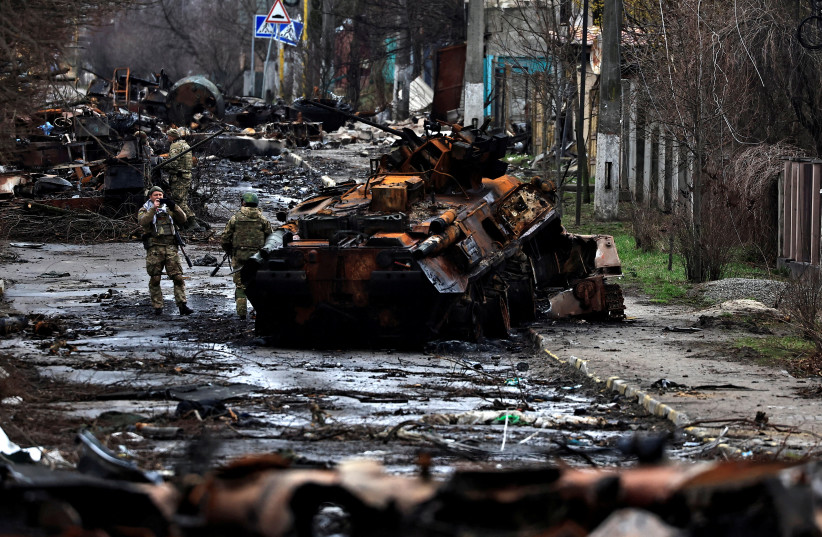A missile fell in Poland on Tuesday and killed two people. This is an escalation in the fighting that has taken place ever since Russia invaded Ukraine earlier this year.
Since the beginning of the conflict, Russia has often hinted that it could use nuclear weapons, and commentators have expressed concern about a “third world war” if the escalation gets out of hand. This is a stark reminder of how escalations can happen.
The missile that fell in Poland appears to be a Ukrainian air defense missile that fell accidentally after Ukraine tried to stop Russian cruise missiles from raining down on Ukraine this week.
Russia has been targeting civilian infrastructure in Ukraine, and on Tuesday, Moscow launched a massive attack across the country. Ukraine has a variety of air defense systems. However, as we know in Israel, air defense systems and fighting in neighboring countries can often spill over unintentionally. Syrian S-200s for instance have landed in Cyprus and in Israel in the past.
The incident on Tuesday in Poland reminds us that it is always important to try to reduce tensions and work for peace. Russia and Ukraine should be able to come to an agreement, hopefully, one that enables Ukrainians to return to their homes and lands and have the security they need in the future. The administration of US President Joe Biden has been careful not to escalate rhetoric in the wake of the missile falling in Poland. Biden was at the G20 in Indonesia when the incident happened.

“I don’t want to say that [it was fired from Russia] until we completely investigate,” Biden said. “It’s unlikely... in the lines of the trajectory that it was fired from Russia. But we’ll see.”
NATO and G7 countries said on Wednesday they would remain in close contact to decide on any possible reaction to the rocket.
The joint statement followed an emergency meeting they held on the sidelines of a G20 summit in Indonesia, to discuss the explosions in NATO-member Poland.
Countries bordering Russia have expressed support for Poland. Many countries are outraged by the continued invasion of Ukraine and they know that it may be only a matter of time before the threats against Ukraine affect more areas of Europe. For all these reasons, it is important the US and other countries use forums like the G20 to try to push for peace.
Preventing other wars
Biden met with China’s leader this week and they both appeared to work together to reduce the chances of conflict over Taiwan and to put out statements against any kind of escalation. CIA chief William Burns also met with his Russian counterpart this week in Turkey in another attempt to persuade Russia against using nuclear weapons.
All of these meetings are important. We in Israel know all too well the tragedy of war and the necessity of reducing conflict, reducing tensions and working toward compromise. This doesn’t mean there is ever a quick end to wars, like the ongoing tensions in Syria between Israel and Iran.
However, as we saw with the Lebanon maritime deal, cool heads can prevail. It is essential that this approach is taken to help to reduce the violence and tension in Ukraine and protect civilians who are being harmed daily by the fighting.
Mykhailo Podolyak, an adviser to the head of the Office of the Ukrainian President, said this week that “the war was started and is being waged by Russia. Russia is massively attacking Ukraine with cruise missiles. Russia has turned the eastern part of the European continent into an unpredictable battlefield.”
We understand Ukraine’s pain, and the missile falling in Poland is an example of exactly how things can get out of hand. The discussions at the G20 and Biden’s attempts to reduce tensions with China and Russia are all emblematic of positive signs.
Now what is important is to build on this positive moderation and work towards peace in Ukraine as well as a wider peace that can help the Middle East work towards prosperity instead of conflict.
The incident in the Gulf of Oman in which a tanker was reportedly targeted by a drone, for instance, is another example of where we need to focus efforts on reducing these kinds of lawless incidents and threats that harm regional and global security.
